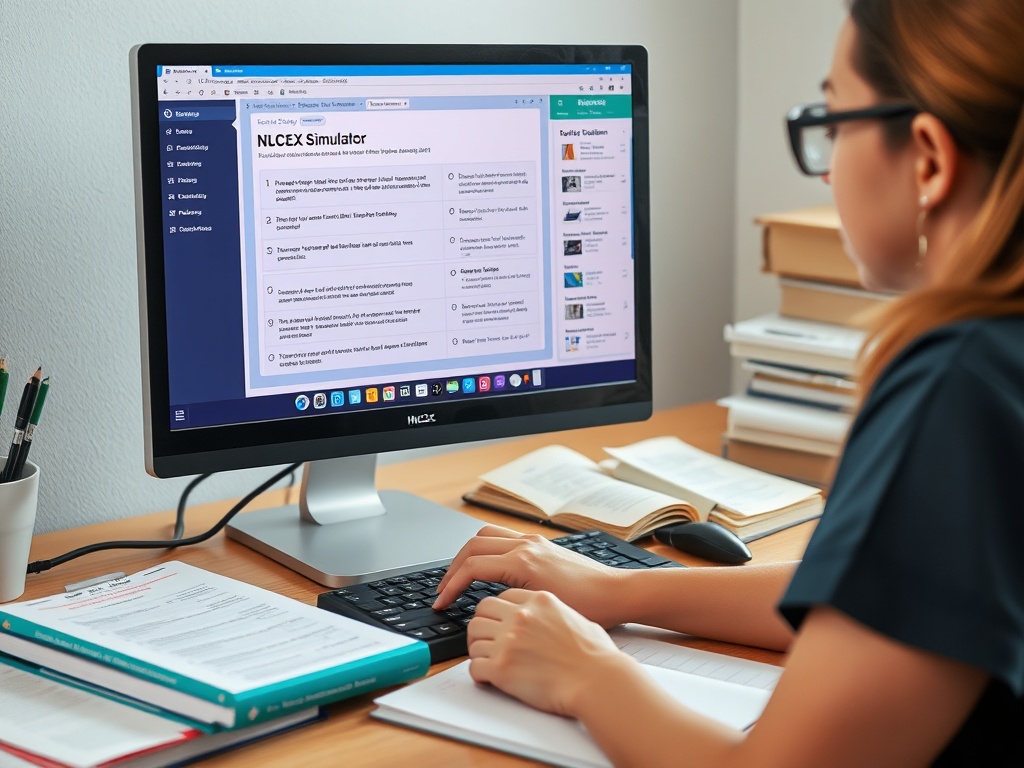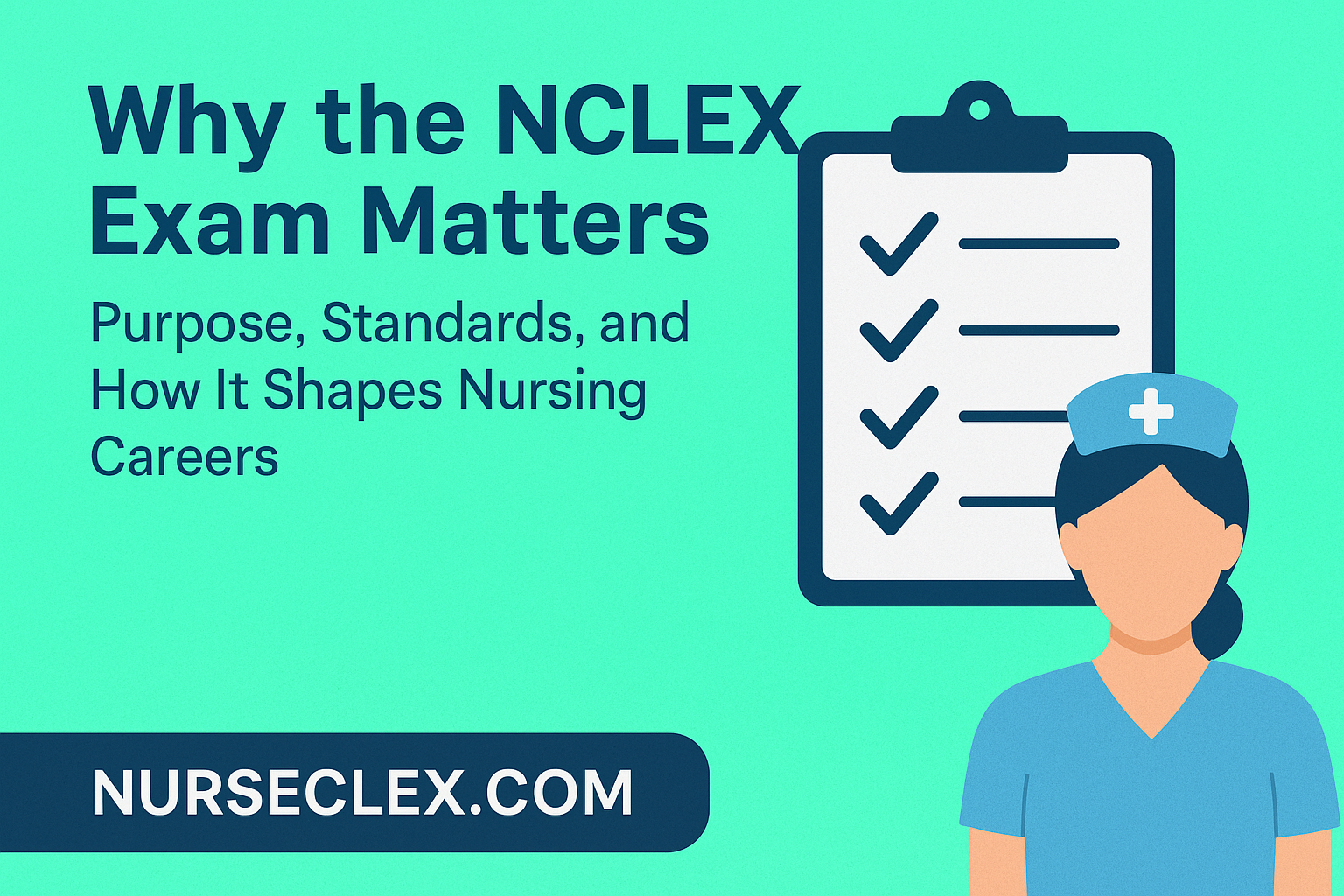Preparing for the NCLEX (National Council Licensure Examination) can feel overwhelming. With so much riding on a single exam, many nursing graduates experience stress, self-doubt, and uncertainty about how best to study. The good news? You don’t have to prepare blindly. One of the most effective ways to build exam confidence and competence is by using NCLEX simulators.
These tools go beyond regular practice questions—they replicate the real testing environment, sharpen your critical thinking, and help you master both content and exam strategies. Let’s explore why simulators are a game-changer in NCLEX prep and how you can maximize their benefits.
What Are NCLEX Simulators?
An NCLEX simulator is an online platform that mirrors the format, style, and difficulty of the actual NCLEX exam. Unlike generic practice tests, simulators are designed with Computerized Adaptive Testing (CAT) in mind—the same technology used in the real exam.
This means:
-
You’ll face questions that adapt to your performance.
-
The simulator stops when it determines your ability level (just like the actual NCLEX).
-
You’ll practice under timed conditions, helping you build focus and stamina.
Think of it as a dress rehearsal for test day—where you not only review content but also condition yourself mentally and emotionally.
Benefits of Using NCLEX Simulators
1. Realistic Exam Experience
NCLEX simulators recreate the pressure, pacing, and unpredictability of the real exam. By repeatedly practicing under exam-like conditions, you reduce “test shock” and walk into the actual NCLEX knowing what to expect.
2. Immediate, Detailed Feedback
After each test session, simulators provide in-depth explanations of both correct and incorrect answers. This feedback is essential for:
-
Identifying weak areas (e.g., pharmacology, pediatrics, or delegation).
-
Understanding why answers are wrong rather than just memorizing.
-
Reinforcing nursing principles and clinical judgment.
3. Targeted and Flexible Practice
Good simulators allow customization—so instead of practicing randomly, you can:
-
Focus on specific client needs categories (e.g., physiological integrity, health promotion).
-
Drill down into specialty areas (pediatrics, mental health, pharmacology).
-
Balance broad comprehensive exams with shorter, focused quizzes.
This approach ensures that you spend your time wisely and strengthen your weakest areas.
4. Critical Thinking and Clinical Judgment
The NCLEX isn’t just about recalling facts—it’s about safe, effective decision-making. Simulators often include:
-
Case studies and scenario-based questions,
-
Priority-setting exercises (who to assess first, what to do next),
-
Delegation and assignment challenges.
Practicing these regularly develops your ability to think like a nurse, not just a student.
5. Improved Test-Taking Strategies
Every NCLEX candidate knows the frustration of tricky questions with multiple “right” answers. Simulators help you practice strategies such as:
-
Eliminating distractors.
-
Identifying keywords and patient safety priorities.
-
Managing test anxiety and pacing (e.g., avoiding spending too much time on a single question).
Over time, these strategies become second nature.
6. Confidence Through Familiarity
Confidence comes from preparation and repetition. By using simulators consistently, you’ll:
-
Build exam stamina (handling long testing sessions).
-
Reduce anxiety by making the unfamiliar familiar.
-
Replace fear with familiarity—so exam day feels like “just another practice run.”
How to Incorporate NCLEX Simulators into Your Study Plan
1. Schedule Regular Sessions
Treat simulators as non-negotiable study appointments. For example:
-
3–4 short quizzes during the week.
-
One full-length practice exam on the weekend.
Consistency is more effective than cramming.
2. Analyze and Reflect
Don’t just review your score—study your mistakes:
-
Did you misinterpret the question?
-
Did you lack content knowledge?
-
Did you rush because of timing?
Keeping a study journal helps track progress and prevents repeating the same errors.
3. Combine with Other Study Tools
Simulators are powerful but work best when combined with:
-
Study guides and content review (e.g., NurseClex resources).
-
Flashcards for pharmacology and lab values.
-
Peer study groups to discuss rationales and strategies.
4. Simulate Exam Day Conditions
Once or twice before your test, take a full-length NCLEX simulator exam in a quiet environment:
-
No phone, no distractions.
-
Stick to the exact time limits.
-
Take breaks only when allowed.
This conditions you for the real experience.
5. Use Nurseclex for Practice
AtNurseclex you’ll find:
-
NCLEX-style questions and simulators designed by experienced nurse educators.
-
Topic-based practice tests for areas like pediatrics, pharmacology, and mental health.
-
Step-by-step rationales to deepen your understanding.
These tools are tailored to not just help you pass—but to make you a safe, confident, and competent nurse.
Common Mistakes Students Make with Simulators (and How to Avoid Them)
-
Relying only on scores – Focus more on learning from explanations than just chasing a high score.
-
Skipping reflection – If you don’t review why you missed a question, you’ll repeat the same mistake.
-
Ignoring stamina building – The NCLEX can run 4–5 hours. Train your focus with longer sessions.
-
Practicing without strategy – Random practice is fine, but targeted review maximizes results.
Conclusion: Confidence Through Practice
Preparing for the NCLEX doesn’t have to feel like stepping into the unknown. By consistently using NCLEX simulators, you gain:
-
A realistic preview of the exam,
-
Stronger critical thinking and test-taking skills,
-
And most importantly, confidence in your ability to succeed.
Remember: Passing the NCLEX is about more than just memorizing—it’s about proving you’re ready to protect lives and provide safe nursing care. With the right tools from nurseclex.com, you’ll be ready to not just pass, but to thrive in your nursing career.
Start practicing today at nurseclex.com and take your next step toward NCLEX success.






